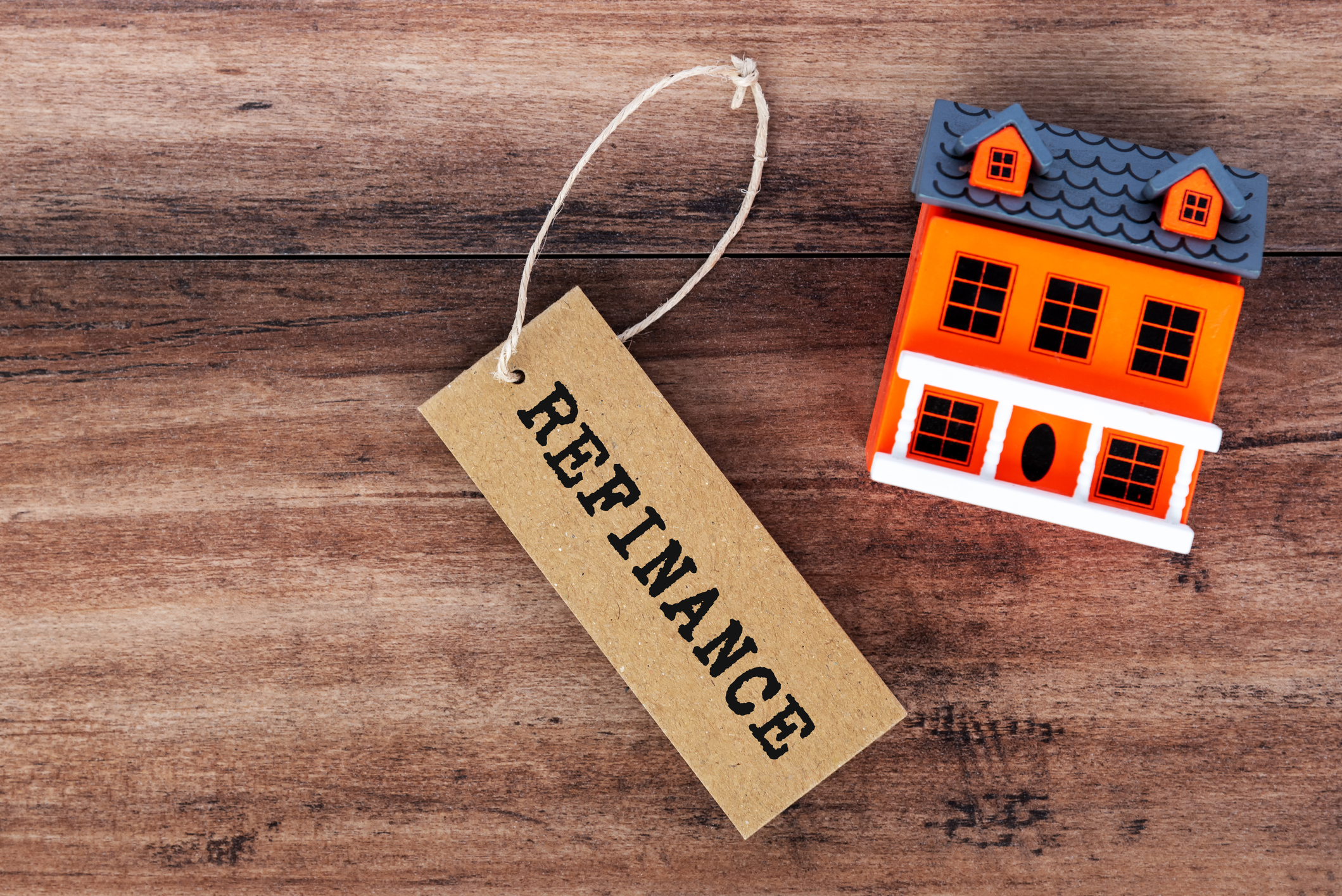Tax Credit for New Homebuyers May Get Better
The credit was originally designed as a loan one had to pay back. That may no longer be the case.

Profit and prosper with the best of Kiplinger's advice on investing, taxes, retirement, personal finance and much more. Delivered daily. Enter your email in the box and click Sign Me Up.
You are now subscribed
Your newsletter sign-up was successful
Want to add more newsletters?

Delivered daily
Kiplinger Today
Profit and prosper with the best of Kiplinger's advice on investing, taxes, retirement, personal finance and much more delivered daily. Smart money moves start here.

Sent five days a week
Kiplinger A Step Ahead
Get practical help to make better financial decisions in your everyday life, from spending to savings on top deals.

Delivered daily
Kiplinger Closing Bell
Get today's biggest financial and investing headlines delivered to your inbox every day the U.S. stock market is open.

Sent twice a week
Kiplinger Adviser Intel
Financial pros across the country share best practices and fresh tactics to preserve and grow your wealth.

Delivered weekly
Kiplinger Tax Tips
Trim your federal and state tax bills with practical tax-planning and tax-cutting strategies.

Sent twice a week
Kiplinger Retirement Tips
Your twice-a-week guide to planning and enjoying a financially secure and richly rewarding retirement

Sent bimonthly.
Kiplinger Adviser Angle
Insights for advisers, wealth managers and other financial professionals.

Sent twice a week
Kiplinger Investing Weekly
Your twice-a-week roundup of promising stocks, funds, companies and industries you should consider, ones you should avoid, and why.

Sent weekly for six weeks
Kiplinger Invest for Retirement
Your step-by-step six-part series on how to invest for retirement, from devising a successful strategy to exactly which investments to choose.
If you bought a new home last year -- or are planning to buy one this year -- you may be able to cash in on a juicy new tax break when you file your 2008 federal return
You can claim a tax credit equal to 10% of the purchase price -- up to $7,500 -— if you bought a principal residence after April 8, 2008. (A tax credit, which reduces your tax bill dollar-for-dollar, is more valuable than a tax deduction that merely reduces the amount of your income that is taxed.) To qualify for the tax credit, you (and your spouse if you are married) cannot have owned a home during the previous three years.
Vacation homes and rental properties are not eligible, and you have to meet income requirements. For single taxpayers, the credit decreases as modified adjusted gross income rises above $75,000, and it disappears altogether above $95,000. For example, if your income is $85,000, you could receive a credit worth no more than $3,750. For married couples, the credit starts to decline when your modified adjusted gross income reaches $150,000 and disappears after $170,000.
From just $107.88 $24.99 for Kiplinger Personal Finance
Become a smarter, better informed investor. Subscribe from just $107.88 $24.99, plus get up to 4 Special Issues

Sign up for Kiplinger’s Free Newsletters
Profit and prosper with the best of expert advice on investing, taxes, retirement, personal finance and more - straight to your e-mail.
Profit and prosper with the best of expert advice - straight to your e-mail.
As currently structured, the new $7,500 tax credit for first-time home buyers is actually a tax-free loan that you must pay back to the government over 15 years -- starting two years after the year the credit is claimed. If you sell the house before the money is paid back, the loan is due in full in the year of the sale.
But Congress has already tinkered with the new law as part of the massive economic stimulus package. First-time home buyers who purchase a home between January 1 and November 30, 2009, can qualify for an $8,000 tax credit and they don't have to repay the credit as long as they remain in their house at least three years. (Those who bought their homes in 2008 still must repay the credit.)
Even if you buy a home this year, you can still claim the tax credit on your 2008 return. Use Form 1040X if you want to amend a 2008 return that you have already filed. Or you can extend your tax-deadline until October 15 by filing Form 4868. (An extension delays the deadline for filing forms but not for any payment you owe.)
Profit and prosper with the best of Kiplinger's advice on investing, taxes, retirement, personal finance and much more. Delivered daily. Enter your email in the box and click Sign Me Up.

-
 Over 65? Here's What the New $6K 'Senior Deduction' Means for Medicare IRMAA Costs
Over 65? Here's What the New $6K 'Senior Deduction' Means for Medicare IRMAA CostsTax Breaks A new deduction for people over age 65 has some thinking about Medicare premiums and MAGI strategy.
-
 U.S. Congress to End Emergency Tax Bill Over $6,000 Senior Deduction and Tip, Overtime Tax Breaks in D.C.
U.S. Congress to End Emergency Tax Bill Over $6,000 Senior Deduction and Tip, Overtime Tax Breaks in D.C.Tax Law Here's how taxpayers can amend their already-filed income tax returns amid a potentially looming legal battle on Capitol Hill.
-
 5 Investing Rules You Can Steal From Millennials
5 Investing Rules You Can Steal From MillennialsMillennials are reshaping the investing landscape. See how the tech-savvy generation is approaching capital markets – and the strategies you can take from them.
-
 Could Tax Savings Make a 50-Year Mortgage Worth It?
Could Tax Savings Make a 50-Year Mortgage Worth It?Buying a Home The 50-year mortgage proposal by Trump aims to address the housing affordability crisis with lower monthly mortgage payments. But what does that mean for your taxes?
-
 Mortgage Refinance in 2025? These Tax Breaks Can Boost Your Savings
Mortgage Refinance in 2025? These Tax Breaks Can Boost Your SavingsTax Breaks Refinancing your mortgage comes with tax implications, but also opportunities to deduct certain expenses on your return.
-
 The Fall Garden Tax? What to Plant and How to Prepare
The Fall Garden Tax? What to Plant and How to PrepareTax Tips Fall gardening could increase your taxes this season. Here’s what to know while planting in 2025.
-
 Ten Cheapest Places to Live in Virginia
Ten Cheapest Places to Live in VirginiaProperty Taxes The Commonwealth of Virginia has some cheap places to live. Here are a few if you hate paying property taxes.
-
 Retire in the Bahamas With These Three Tax Benefits
Retire in the Bahamas With These Three Tax BenefitsRetirement Taxes Retirement in the Bahamas may be worth considering for high-net-worth individuals who hate paying taxes on income and capital gains.
-
 Landmark Lawsuit Targets Unfair NYC Property Taxes
Landmark Lawsuit Targets Unfair NYC Property TaxesProperty Tax New York’s highest court just weighed in on the city’s embattled property tax code. Here's what it could mean for you.
-
 IRS Solar Tax Credit Payouts Soar as Scams Target Homeowners
IRS Solar Tax Credit Payouts Soar as Scams Target HomeownersClean Energy Clean energy tax credits are paying off for many, but experts warn of increasing scams.
-
 The Mansion Tax: Do You Need to Worry About It?
The Mansion Tax: Do You Need to Worry About It?Mansion Tax If you’re in the market for a high-value home, you may face an additional tax rolled into your closing costs.